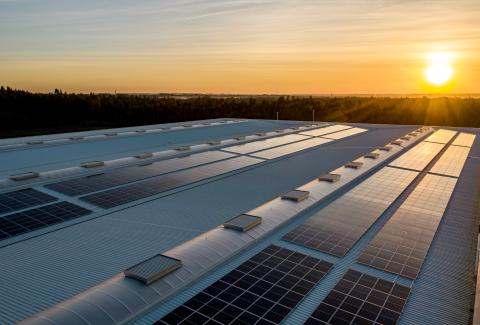West Virginia’s Belligerent New Legislature
West Virginia’s state legislature—under Republican Party control for the first time in 83 years—is off to an errant start to its 2015 session with a pair of energy policy bills that make no sense in the fast-changing energy economy.
One is a rhetorical flourish against renewable energy; the other is aimed mostly at codifying defiance of new federal emissions standards.
House Bill 2001 repealed the state’s five-year-old alternative and renewable energy portfolio standard, a rule that requires electric utilities to source 25 percent of their power from “alternative and renewable” sources by 2025. The change is meaningless, however, because the standard it repeals counts supercritical coal plants—those that are more energy-efficient than the norm—as alternative sources. Those plants make up at least two-thirds of the state’s electricity supply, which means West Virginia’s clean-energy commitment is hollow to begin with. (“We’re the only state that has an alternative portfolio standard that would be met with 100 percent coal,” Jeff Herholdt, the head of the West Virginia Division of Energy, boasted in 2013.)
The good news—if you can call it that—is that House Bill 2001 rids state government of any pretense that it is serious about supporting the development of renewable energy.
The only piece of the law worth keeping is the portion that authorizes net metering, allowing homeowners with rooftop solar panels to sell their electricity back to the grid at retail rates. Thanks to a very rapid response from the state’s solar community (which flooded the legislature with dozens of calls within hours of the introduction of the repeal bill), net metering survived this attack.
The other backward step the state’s new legislature wants to take is embodied in similar bills in both chambers—Senate Bill 4 and House Bill 2004—that would severely limit West Virginia’s compliance with the EPA’s impending expanded limits on greenhouse-gas emissions from existing power plants.
Under the EPA’s proposed new rule, each state would be given an emission-reduction target based on the agency’s estimate of each state’s ability to (1) increase efficiency at existing coal-fired power plants; (2) switch from coal to gas; (3) develop low-carbon sources of power; and (4) reduce electricity demand through efficiency. Each state would be required to file plans for meeting its target; if the EPA deemed any state plan insufficient, it would impose its own emission-control program on that state.
Senate Bill 4 and House Bill 2004 would prohibit West Virginia from complying with new EPA standards by any means other than increasing efficiency at existing coal-fired power plants. In other words, renewable energy and energy efficiency would be off the table as emission-control strategies in West Virginia, and the state would find new EPA standards impossible to achieve. The main point of the resistance implied in Senate Bill 4 and House Bill 2004 is to stir up more needless friction between the state and the EPA.
Lawmakers are touting both of these proposals as potential saviors of the state’s deeply ingrained coal industry. It’s a misguided strategy that ignores the fact that coal markets are in extreme structural decline with the rise of cleaner, more responsible energy sources and that coal mining does not employ as many West Virginians as it once did.
The more likely outcome of this legislative belligerence is that the people of West Virginia will miss out on larger opportunities to diversify their economy away from an increasingly expensive fuel. It means also that ratepayers will end up paying more than necessary for electricity as their leaders wage a foolhardy fight against the future.
Cathy Kunkel is an IEEFA fellow and a resident of West Virginia.















